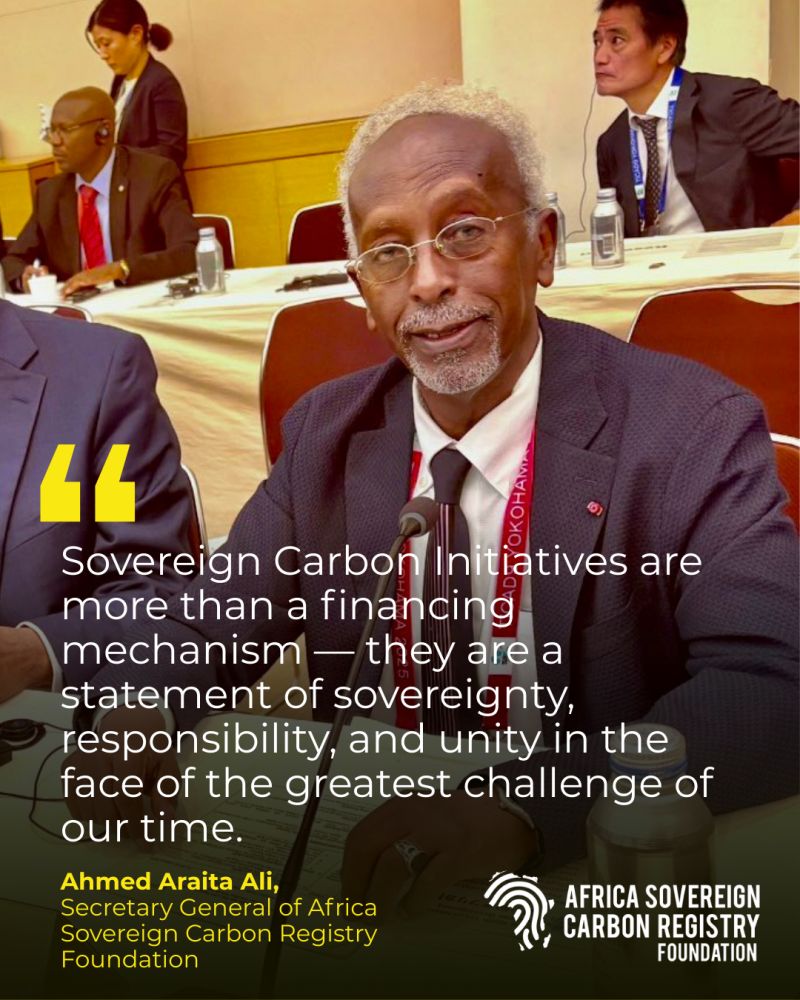“𝑊𝑒 𝑐𝑜𝑛𝑡𝑟𝑖𝑏𝑢𝑡𝑒 𝑜𝑛𝑙𝑦 4% 𝑜𝑓 𝑔𝑙𝑜𝑏𝑎𝑙 𝑒𝑚𝑖𝑠𝑠𝑖𝑜𝑛𝑠, 𝑦𝑒𝑡 𝐴𝑓𝑟𝑖𝑐𝑎 𝑖𝑠 𝑡ℎ𝑒 𝑚𝑜𝑠𝑡 𝑎𝑓𝑓𝑒𝑐𝑡𝑒𝑑 𝑐𝑜𝑛𝑡𝑖𝑛𝑒𝑛𝑡. 𝑊𝑒 𝑑𝑜 𝑛𝑜𝑡 ℎ𝑎𝑣𝑒 𝑡ℎ𝑒 𝑙𝑢𝑥𝑢𝑟𝑦 𝑜𝑓 𝑡𝑖𝑚𝑒. 𝑊𝑒 𝑚𝑢𝑠𝑡 𝑎𝑐𝑡 𝑛𝑜𝑤. 𝐵𝑢𝑡 𝑡𝑜 𝑎𝑐𝑡, 𝑤𝑒 𝑛𝑒𝑒𝑑 𝑟𝑒𝑠𝑜𝑢𝑟𝑐𝑒𝑠. 𝑇ℎ𝑎𝑡 𝑖𝑠 𝑤ℎ𝑦 𝑤𝑒 𝑚𝑢𝑠𝑡 𝑑𝑒𝑣𝑒𝑙𝑜𝑝 𝑠𝑜𝑣𝑒𝑟𝑒𝑖𝑔𝑛, 𝐴𝑓𝑟𝑖𝑐𝑎-𝑙𝑒𝑑 𝑓𝑖𝑛𝑎𝑛𝑐𝑖𝑛𝑔 𝑠𝑜𝑙𝑢𝑡𝑖𝑜𝑛𝑠.”

This is exactly what 𝐒𝐨𝐯𝐞𝐫𝐞𝐢𝐠𝐧 𝐂𝐚𝐫𝐛𝐨𝐧 𝐈𝐧𝐢𝐭𝐢𝐚𝐭𝐢𝐯𝐞𝐬 are achieving with the support of the 𝐀𝐟𝐫𝐢𝐜𝐚𝐧 𝐒𝐨𝐯𝐞𝐫𝐞𝐢𝐠𝐧 𝐂𝐚𝐫𝐛𝐨𝐧 𝐑𝐞𝐠𝐢𝐬𝐭𝐫𝐲 𝐅𝐨𝐮𝐧𝐝𝐚𝐭𝐢𝐨𝐧. In Djibouti, the first Initiative launched in 2023 has already financed around fifty programs, from clean water access and maternity hospitals to biodiversity preservation, mangrove restoration and renewable energy, made possible by carbon contributions collected from international maritime and air polluters. All of this without disrupting port or airport activity. Earlier this year, Gabon became the second country to adopt this pioneering mechanism.
What emerged at TICAD-9 is a powerful signal: Africa’s partners recognize that 𝐬𝐨𝐯𝐞𝐫𝐞𝐢𝐠𝐧𝐭𝐲 𝐢𝐬 𝐞𝐬𝐬𝐞𝐧𝐭𝐢𝐚𝐥 𝐟𝐨𝐫 𝐭𝐡𝐞 𝐜𝐨𝐧𝐭𝐢𝐧𝐞𝐧𝐭 𝐭𝐨 𝐭𝐚𝐤𝐞 𝐜𝐥𝐢𝐦𝐚𝐭𝐞 𝐚𝐜𝐭𝐢𝐨𝐧. The role of 𝐀𝐟𝐫𝐢𝐜𝐚 𝐒𝐨𝐯𝐞𝐫𝐞𝐢𝐠𝐧 𝐂𝐚𝐫𝐛𝐨𝐧 𝐑𝐞𝐠𝐢𝐬𝐭𝐫𝐲 𝐅𝐨𝐮𝐧𝐝𝐚𝐭𝐢𝐨𝐧 is to ensure these Sovereign Carbon Initiatives are designed, governed and verified with the highest standards of integrity, thereby enabling the financing of environmental and climate-mitigation projects in African countries.
Because Africa is not only a victim of climate change. 𝐀𝐟𝐫𝐢𝐜𝐚 𝐢𝐬 𝐚𝐧 𝐢𝐧𝐧𝐨𝐯𝐚𝐭𝐨𝐫, 𝐚 𝐥𝐞𝐚𝐝𝐞𝐫, 𝐚𝐧𝐝 𝐚 𝐛𝐮𝐢𝐥𝐝𝐞𝐫 𝐨𝐟 𝐬𝐨𝐥𝐮𝐭𝐢𝐨𝐧𝐬, 𝐟𝐨𝐫 𝐢𝐭𝐬𝐞𝐥𝐟 𝐚𝐧𝐝 𝐟𝐨𝐫 𝐭𝐡𝐞 𝐩𝐥𝐚𝐧𝐞𝐭.
🔗 Read more about the recognition of African-led initiatives at TICAD-9
